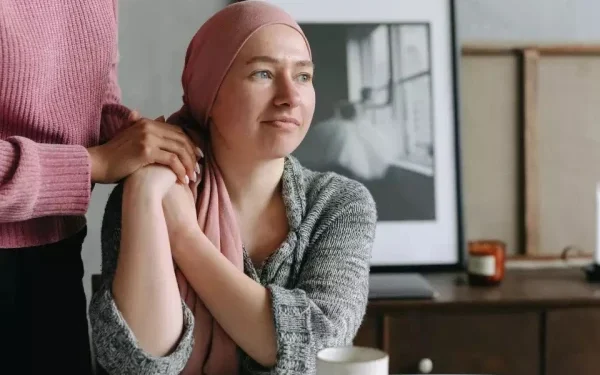Cancer remains one of the leading causes of death worldwide. However, numerous studies and expert guidelines suggest that adopting a healthy lifestyle can significantly reduce the risk of developing many types of cancer. While no method can guarantee complete prevention, making mindful choices about diet, physical activity, and daily habits can dramatically lower your chances.
Here’s an in-depth look at evidence-based strategies to minimize your cancer risk.
1. Eat a Healthy, Balanced Diet
Nutrition plays a crucial role in cancer prevention. A diet rich in natural, unprocessed foods strengthens the body’s defenses against cancer cells.
Focus on Plant-Based Foods
- Fruits and Vegetables: Aim for at least five servings a day. They are rich in antioxidants, fiber, and essential nutrients that help protect cells from damage.
- Whole Grains and Legumes: Foods like brown rice, quinoa, lentils, and chickpeas provide fiber that supports digestive health and reduces colorectal cancer risk.
Reduce Red and Processed Meat Consumption
Studies have linked high consumption of red meats (beef, lamb, pork) and processed meats (bacon, sausages, deli meats) to increased risks of colorectal and stomach cancers. Opt for lean proteins such as fish, chicken, tofu, or plant-based alternatives.
2. Avoid Sugar and Ultra-Processed Foods
Ultra-processed foods, often high in added sugars, unhealthy fats, and artificial additives, contribute to weight gain and obesity—a major risk factor for several cancers, including breast, colon, and kidney cancers.
Healthy Substitutes
- Replace sugary snacks with fresh fruits.
- Choose whole foods over processed items.
- Read labels carefully to avoid hidden sugars and harmful additives.
Maintaining a healthy weight is one of the most effective ways to reduce cancer risk.
3. Don’t Smoke: The Deadliest Risk Factor
Smoking remains the leading cause of preventable cancer deaths. Tobacco use is linked not only to lung cancer but also to at least 15 other types, including cancers of the mouth, throat, pancreas, bladder, cervix, and kidney.
Key Facts about Smoking and Cancer
- There’s no safe level of smoking.
- Even secondhand smoke increases cancer risk.
- Quitting smoking at any age significantly reduces your risk of cancer.
If you smoke, seek support programs, counseling, or medications to help you quit.
4. Quit Drinking Alcohol
Alcohol consumption has been classified as a Group 1 carcinogen by the International Agency for Research on Cancer (IARC). Even moderate drinking can elevate the risk of several types of cancers, such as breast, liver, esophageal, and colorectal cancers.
Guidelines for Alcohol Consumption
- The safest approach is to avoid alcohol entirely.
- If you choose to drink, limit your intake according to medical guidelines—no more than one drink per day for women and two for men.
Reducing or eliminating alcohol significantly contributes to lowering your cancer risk.
5. Protect Your Skin from Harmful UV Rays
Skin cancer, including melanoma—the most deadly form—is largely preventable with proper sun protection.
Sun Safety Tips
- Avoid Peak Sun Hours: The sun’s rays are strongest between 10 a.m. and 4 p.m.
- Wear Protective Clothing: Use wide-brimmed hats, sunglasses, and long-sleeved clothing.
- Use Sunscreen: Apply broad-spectrum sunscreen with an SPF of at least 30. Reapply every two hours, especially after swimming or sweating.
Avoiding tanning beds, which emit harmful UV radiation, is also critical for skin cancer prevention.
6. Stay Physically Active
Regular physical activity helps maintain a healthy weight, regulates hormones, boosts immune function, and reduces inflammation—all factors associated with lower cancer risk.
Recommended Exercise Guidelines
- Moderate Activity: At least 150 minutes per week (e.g., brisk walking, cycling).
- Vigorous Activity: At least 75 minutes per week (e.g., running, swimming laps).
Physical activity specifically lowers the risk of colon, breast, and endometrial cancers.
7. Get Vaccinated to Prevent Virus-Linked Cancers
Certain infections increase cancer risk, but vaccines offer powerful protection.
Essential Cancer-Preventing Vaccines
- HPV Vaccine: Protects against human papillomavirus, which causes cervical, anal, throat, and other genital cancers.
- Hepatitis B Vaccine: Reduces the risk of liver cancer caused by chronic hepatitis B infection.
Vaccination is a safe, effective way to lower your long-term cancer risk.
8. Know Your Family History
Genetics play a role in 5–10% of all cancers. Understanding your family medical history can help you and your healthcare provider assess your risk.
When to Seek Genetic Counseling
- Multiple family members diagnosed with the same type of cancer.
- Early-age cancer diagnoses in your family.
- Rare types of cancer or multiple cancers in one individual.
Genetic testing and regular screenings may be recommended if you have a high familial risk.
9. Avoid Exposure to Cancer-Causing Substances
Exposure to environmental carcinogens can significantly raise cancer risk over time.
Common Carcinogens to Avoid
- Asbestos: Found in old buildings; linked to lung cancer and mesothelioma.
- Radon Gas: A natural radioactive gas that can accumulate in homes; a leading cause of lung cancer.
- Benzene: Present in industrial emissions and cigarette smoke; associated with blood cancers.
Workplaces should follow safety regulations to minimize exposure, and homeowners can take steps such as radon testing to protect themselves.
10. Regular Screenings and Medical Check-Ups
Early detection through screening greatly improves cancer treatment outcomes.
Recommended Cancer Screenings
- Mammograms for breast cancer.
- Pap smears and HPV testing for cervical cancer.
- Colonoscopy for colorectal cancer.
- Low-dose CT scans for lung cancer (for high-risk individuals).
Discuss a personalized screening schedule with your healthcare provider based on your age, gender, and risk factors.
Conclusion: Small Changes, Big Impact
Reducing your risk of cancer involves making informed, consistent choices across different aspects of life. From eating a balanced diet and exercising regularly to avoiding tobacco and staying vigilant about screenings, small lifestyle changes can have a profound impact on your long-term health.
Taking preventive steps today not only improves your overall quality of life but also brings peace of mind, knowing you’re actively working to safeguard your future.

























